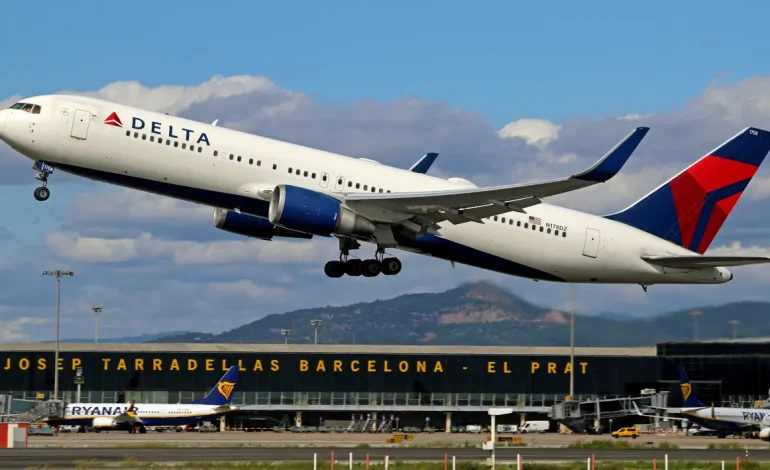Delta Air Lines shares surged Thursday after the carrier reported better-than-expected second-quarter earnings, reinstated its full-year outlook, and increased its dividend—moves that boosted confidence across the airline sector.
The company reported adjusted earnings of $2.10 per share, slightly above analyst expectations of $2.05, while revenue came in at $15.51 billion, narrowly topping forecasts. Delta had previously paused its full-year guidance in April amid market uncertainty and weakening consumer demand but now expects full-year adjusted earnings between $5.25 and $6.25 per share. That range, while below its original January forecast of more than $7.35 per share, still exceeds Wall Street’s current expectations.
CEO Ed Bastian told CNBC that bookings have stabilized, though at lower levels than originally anticipated earlier in the year. He attributed the more positive outlook to improving clarity around global trade policy and consumer behavior.
“We’re in a very different place than we were 90 days ago,” he said.
Delta also reaffirmed confidence in its premium travel segment and partnership with American Express, which brought in $2 billion during the quarter—a 10% increase year-over-year. While domestic revenues dipped 1%, international sales rose 2%, with notable strength in the Pacific region.
The carrier forecast third-quarter adjusted earnings of $1.25 to $1.75 per share, compared to analyst estimates of $1.31. It also projects revenue growth between flat and 4% for the quarter, exceeding consensus expectations.
Delta’s positive results and restored guidance had a ripple effect across the airline industry. American Airlines shares rose 6%, while United Airlines gained over 8%. All three airlines have seen year-to-date declines, but Delta’s report offered a potential turning point for investor sentiment.
In a further signal of financial confidence, Delta announced a 25% increase in its quarterly dividend beginning in the third quarter.
Despite the improving outlook, Delta executives acknowledged lingering challenges. Passenger demand remains below initial 2025 expectations, particularly in domestic markets. Delta noted a 5% decline in main cabin sales during Q2, partially offset by a 5% increase in premium ticket purchases. Revenue per available seat mile declined 4% as capacity outpaced demand in some markets, including trans-Atlantic routes.
Still, Bastian emphasized that the airline is adapting by making targeted capacity cuts after the summer peak and adjusting its yield management strategies.
“On balance it’s going to be a good summer,” Bastian said. “Again, not as great a summer as we were hoping, but it will still be good.”
With input from CNBC, the Wall Street Journal, and Investor’s Business Daily.









The latest news in your social feeds
Subscribe to our social media platforms to stay tuned